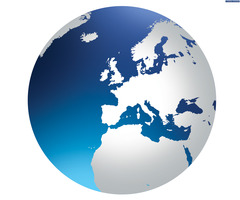European Commission welcomes recovery in Europe's tourism sector
Sofiaecho.com, 09.12.2010
 European Commission Vice President Antonio Tajani has welcomed recent data on the impressive recovery of Europe's tourism industry as a sign of Europe’s overall economic recovery.
Tajani was speaking at the European Tourism Forum in Malta on November 19 2010.
European Commission Vice President Antonio Tajani has welcomed recent data on the impressive recovery of Europe's tourism industry as a sign of Europe’s overall economic recovery.
Tajani was speaking at the European Tourism Forum in Malta on November 19 2010.
The theme of the forum, "Strengthening Europe's Role as the Leading Tourism Destination", reflects the same optimism, a European Commission media statement said. To maintain growth, the development of sustainable, responsible and high quality tourism must be encouraged across Europe. Exciting new opportunities must be seized if Europe is to keep its position as the world’s leading tourist destination, the statement said. "Europe is the world's leading tourist destination and we must keep it this way," Tajani said.
"New emerging markets, such as Brazil, Russia, India and China, can offer an opportunity for Europe to maintain its growth rate, as the tourism industry can play a role in alleviating the effects of the crisis. Today, we are discussing a plan to successfully implement Europe’s tourism strategy. It is a clear roadmap for developing key actions such as the European Tourism Observatory, the Platform on Tourism and ICT and the European Quality Brand." Tourism is estimated to generate more than five per cent of the EU’s GDP and provide jobs for about 10 million people. To continue its growth, Europe's tourism industry must look to the promising emerging markets of the BRIC countries, with China as a prominent example, the statement said.
Although in absolute terms North America is still by far the largest market in terms of incoming tourists to Europe, followed by Japan and Russia, China has the greatest potential, with a population of just more than 1.3 billion and a growth rate of tourism expenditure concerning outbound tourism of 21 per cent (UNWTO 2009). "To seize the opportunities of new markets and strengthen its leading position, Europe as a destination must prove that it can combine high quality with sustainability," the media statement said. The latest figures from EU statistics office Eurostat regarding international arrivals in 2010 indicate that the recovery of the tourism sector is underway, despite having faced problems such as the eruption of the Icelandic volcano. A comparison of the first six months of 2009 and 2010 demonstrate an increase in arrivals of nine per cent from North America, eight per cent from Japan, 18 per cent from the Russian Federation, 19 per cent from China and an impressive 46 per cent from Brazil. Occupancy rates in Europe are up 5.4 per cent in the third quarter of 2010 and industry figures have improved in every sub-region.
Among the topics discussed at this year’s European Tourism Forum on November 18 and 19 was the added value of a "Brand Europe" to complement regional and national promotional activities, strengthen Europe’s image abroad and encourage co-operation between EU member states, such as "cultural routes" in the field of tourism.
The statement said that a ministerial debate focused on how to best implement the set of actions proposed by the Commission in its Communication of June 30 2010 on "Europe, the world's No 1 tourist destination" in four priority areas:
- Stimulating competitiveness in the European tourism sector;
- Promoting the development of sustainable, responsible and high-quality tourism;
- Consolidating the image of Europe as home to sustainable and high-quality destinations; and
- Maximising the potential of EU policies and financial instruments for the development of tourism.
The achievement of these objectives depends on the commitment of all stakeholders and on their capacity to work together at different levels, the statement said.
 Member of:
Member of:



























 Touroperator
Touroperator
